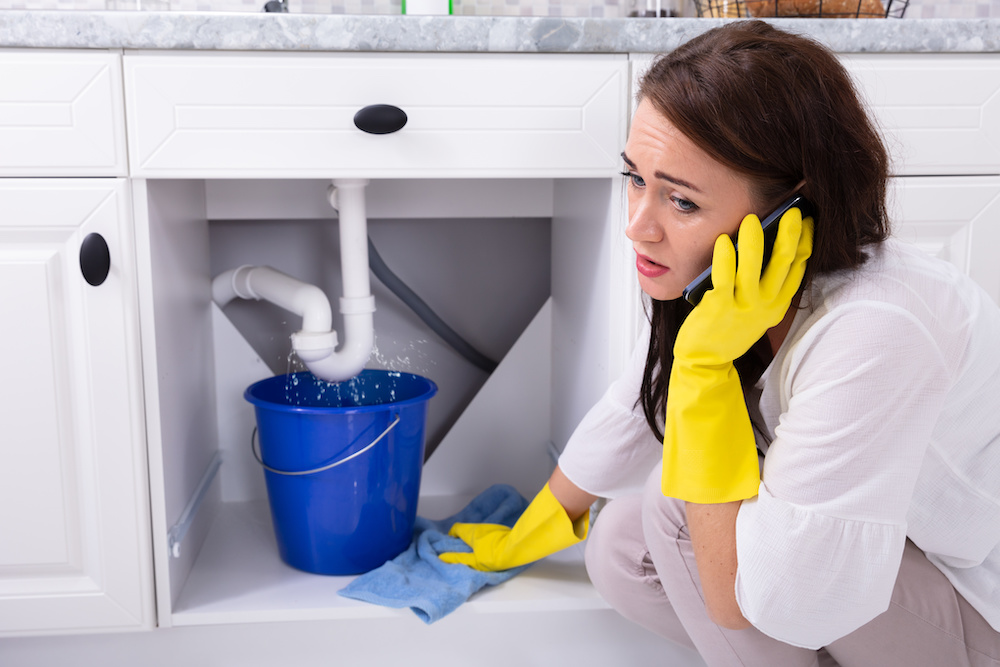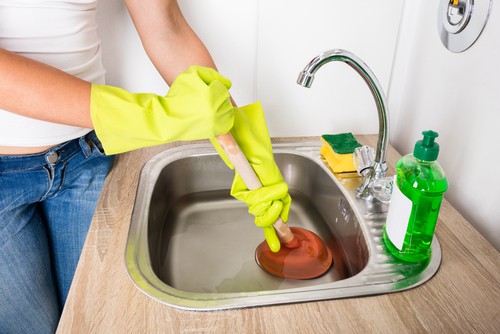Listed here below you might get a good deal of extremely good news when it comes to Expert Tips for Managing a Plumbing Emergency Until Help Arrives.

Pipes emergencies can strike at any time, causing stress and anxiety and prospective damages to your home. Whether it's a burst pipe, a blocked drain, or a leaky tap, understanding how to manage the situation until a specialist plumber arrives can save you from further problems. This article gives essential emergency situation pipes suggestions to help you reduce damage and reclaim control throughout a pipes crisis.
Turn Off the Supply Of Water
The initial step in any type of pipes emergency is to turn off the water system. For localized problems, such as a leaking faucet or bathroom, turn off the valve near the fixture. In the case of a major leak or burst pipe, situate your home's major water shut-off shutoff and transform it off promptly. Understanding the location of these valves beforehand can save important time during an emergency.
Address Small Leaks with Temporary Fixes
Tiny leakages can promptly come to be considerable issues if left unattended. Make use of these short-term repairs up until expert help arrives:
While these fixes aren't permanent, they can help minimize water loss and damage.
Unclog Drains Securely
A stopped up drainpipe can be a discouraging and untidy problem. Here's how to tackle it:
If these techniques don't work, avoid making use of too much pressure, as it may intensify the blockage.
Manage Overflowing Toilets
An overflowing commode can create prompt turmoil. Right here's what you ought to do:
Shut Off Your Hot Water Heater
In specific emergency situations, such as a burst pipeline, it's important to turn off your hot water heater. This avoids overheating or damages to the system when water stops moving. Switch off the power supply to the hot water heater (electric or gas) and allow it cool down to avoid possible dangers.
Briefly Stop a Burst Pipeline
A ruptured pipeline can bring about considerable water damage in minutes. To minimize the concern:
Call a specialist plumbing technician right away to address the trouble permanently.
Take Care Of Frozen Pipeline Carefully
In chillier climates, icy pipes are a common emergency situation. If you presume a frozen pipeline:
Prevent More Damage
Taking fast activity to reduce damages can save you time and money in the future. Right here's exactly how:
. Have an Emergency Situation Pipes Kit
Prepare a fundamental pipes emergency situation package to deal with minor concerns effectively. Your set must consist of:
Having these tools available can make a considerable distinction in your capacity to manage emergencies.
Know When to Call an Expert.
While quick fixes can aid momentarily, certain plumbing issues require immediate specialist focus. Call a plumbing professional if:.
Without delay speaking to a specialist makes sure the problem is dealt with appropriately and stops further complications.
Verdict.
Pipes emergencies can be overwhelming, yet with the ideal understanding and tools, you can take care of the circumstance effectively till aid shows up. By turning off the water, attending to little leaks, and making use of short-term fixes, you can lessen damage and maintain your home safe. Keep in mind, these tips are momentary services; constantly seek advice from a licensed plumbing professional to manage the origin of the problem. Prep work and quick reasoning are your best allies in any type of plumbing emergency.
8 Helpful Tips for Managing Plumbing Emergencies at Home
If your plumbing system hasn’t failed once, wait for it because almost everyone has a story to tell. Sometimes, it could be simple emergencies such as a leaking pipe, a blocked cistern, or even a big burst pipe. In situations like this, you need to have some handy tips to save you some money and from possible damages.
Take care of minor issues early.
Sometimes, you could have avoided an emergency by taking proactive measures while it was still early. Some major plumbing emergencies can be a result of an ignored minor issue. We recommend that you have items like plumbing tapes and other related items. A plumbing tape can allow you to manage minor leaks before the plumber arrives.
Cut off the water supply.
This tip is essential in almost any type of leakage problem. For problems like minor leakages in the toilet or kitchen, turn off the supply that takes water to the affected pipes. If the leakage is a major pipe, you must shut off the supply valve to the entire building. This will help you avoid flooding your home and neighbors if you share a flat.
Know your plumbing system
Folks typically move into a new apartment without understanding the water supply around the building. This can prove disastrous if a water emergency arises and the plumber is far away. The previous tip will prove useless if you don’t practice this one. More importantly, know where your water shut-off valve is located – you’ll need that knowledge to prevent potential home floods.
Have some common handy tools
There are lots of plumbing emergencies that you can handle without hiring a plumber. That’s why you must keep some tools available always. Some tools that you can use to fix simple plumbing emergencies easily include plumbing tapes, screwdrivers, thread seal tapes, plungers, pliers, tape measures, and rubber gloves.
Insulate your pipes from cold
You’ll save yourself from many plumbing expenses if you protect your water pipes from the cold. This is because of the harmful effects that cold weather can have on your pipes. During winter, your pipes can burst from being overly expected to freezing temperatures. So, make sure insulators are there to keep the pipes working correctly.
Avoid practices that will clog your toilet.
Many people indulge in practices that can damage the plumbing system of the entire building. One of these is when they use their toilet to dispose-off garbage. They flush all kinds of things, such as paper towels, bandages, hairs, female sanitary products, etc., down the toilet. This will block your toilet in the long run, incurring unnecessary expenditures. Dump such waste in the trash instead.
Check your dials regularly.
Sometimes, there could be leakages in your home without noticing them in time. So, constantly monitor your water meter dial. If the dial is reading when there is nobody using water, this is an indicator that there is leaking. Check for leaks immediately. Call a plumber as soon as possible if you can’t find any.
https://www.constructionplacements.com/8-helpful-tips-for-managing-plumbing-emergencies-at-home/

Hopefully you enjoyed our part on Expert Tips for Emergency Plumbing Repairs. Thank you for taking time to read through our blog post. Are you aware of somebody else who is excited by the topic? Be sure share it. Thank you so much for taking the time to read it.
Check This Out